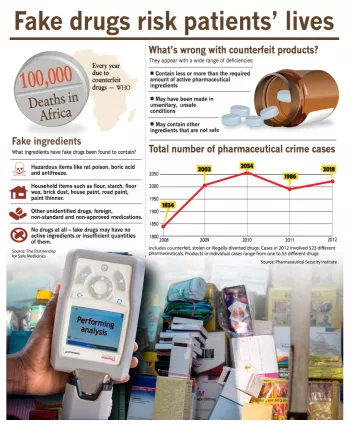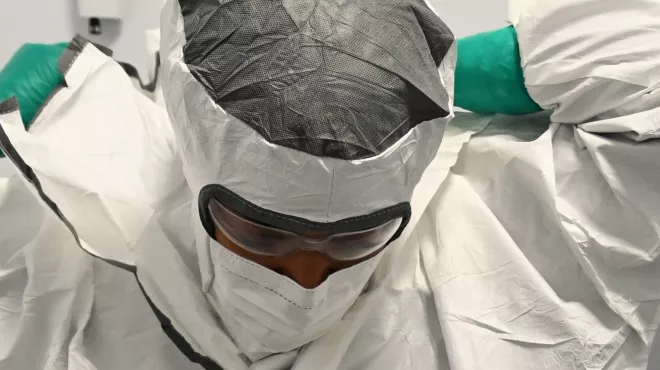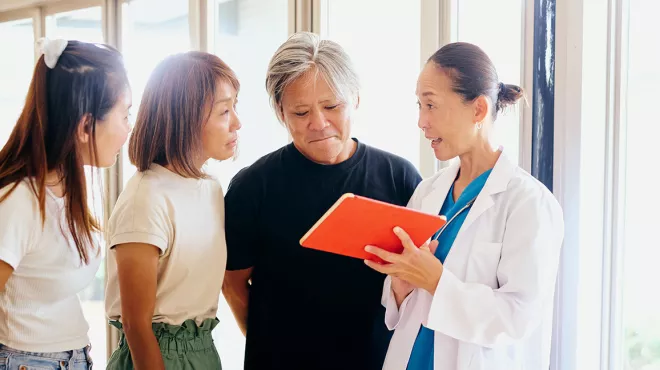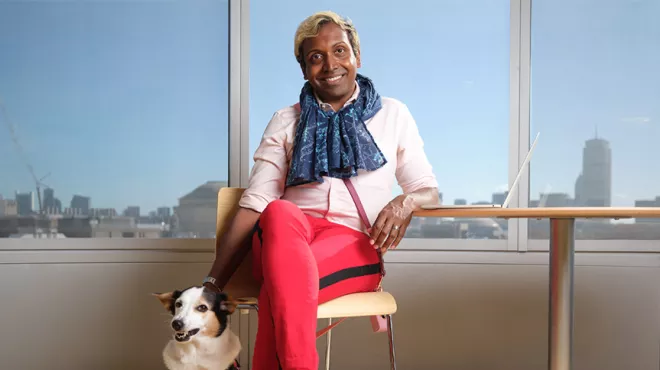
Theo S., an investigations officer with Novartis Corporate Security, was following a hunch when he obtained medical supplies from the Hôpital de Djoungolo in Yaoundé, capital city of Cameroon. Theo, whose surname cannot be revealed for security reasons, had watched a man peddling medical products at a makeshift drug stall just a few blocks from this privately-run healthcare institute. It was one of many peppered throughout the capital of Cameroon and notorious for selling fake or stolen medicines. Theo feared products like these, stacked high on a cart and looking old and dirty, might have been counterfeit and could have ended up being prescribed to patients in the hospital. He was right.
Counterfeit drugs are on the rise and the consequences of this fast-evolving trade can be deadly. Pharmaceutical companies, including Novartis, are fighting back, sharing intelligence and information and working with governments around the world to address the issue.
“Counterfeiting is an enormous problem,” said Andrew Jackson, Head of Global Security at Novartis. “My sincere hope is that it does not require a major catastrophe before there is wider recognition that pharmaceutical counterfeiting is one of the most horrendous crimes out there.”
The consequences of fake drugs are serious for patients who take them: the World Health Organization (WHO) estimates that about 100,000 people die every year in Africa due to counterfeit pharmaceuticals which are not effective against the diseases they are supposed to treat.
View Hi-Res Infographic (PDF 1.2 MB)
A $75 billion market?
The trade in fake and substandard drugs could be worth as much as $75 billion a year, according to one estimate from the Center for Medicine in the Public Interest (CMPI), though determining a precise figure is impossible because of the clandestine nature of the trade and its criminal underpinnings.
Those behind the production of fake drugs are organized and operate across borders. Those tasked with tracking them down are working to keep tabs on them. In October, officials at Zurich airport in Switzerland seized 1 million fake pills resembling a leading anti-anxiety medicine. Four months earlier, US authorities shut down 1600 illegal pharmacy websites, including fake pages claiming to be run by one of America’s largest online pharmacies. And across China and south-east Asia police authorities have confiscated tens of millions of pills, bottles and sachets of counterfeit and illegal medicines.
The trade thrives for the same reason fake luxury watches and handbags abound: it’s lucrative. Forgers produce packs and pills seemingly identical to the real thing and sell them on to wholesalers, retailers and even patients.
Novartis is stepping up efforts to tackle the issue. Since its creation in 1997 Novartis has deployed investigative resources to investigate counterfeit, illegally diverted and stolen drugs worldwide in close collaboration with law enforcement partners. In 2012, Jackson set up a dedicated Product Security team to tackle increasing levels of pharmaceutical crime.
The team is equipped with new high-tech spectrometers which can determine the chemical composition of drugs and identify a fake in a matter of seconds. The hand-held spectrometer works by directing a beam of light through the drug being tested. It is so sensitive it can even tell what has been used to make counterfeits, whether there is any active ingredient at all and whether the composition matches those of previously tested fakes.
Tackling pharmaceutical crime
This speedy analysis represents a major advance for investigators, as previous laboratory work could take weeks. By the time investigators received lab results, the people selling the products would have moved on, making it impossible to track them down.
“Typically when customs officials seize suspected counterfeit products, they have just 72 hours to confirm they are fakes,” said Theo. “If not, they have to be released. It’s very satisfying to be able to analyze products quickly.”
In Cameroon, Theo found many of the street merchants in Yaoundé selling counterfeit medicines, involving a range of drugs. Using the spectrometer, he was also able to prove the fakes, shipped by criminal organizations from China to Africa, were being sold to patients not just in the street but also in private pharmacies and health institutes such as the Hôpital de Djoungolo.
“This was a shock,” said Theo. “Every patient who buys a counterfeit product is at risk of contracting a disease they think they have protection from.”
Following analysis of the drug samples he obtained, Theo sent data to the Novartis headquarters in Basel, Switzerland, where preparations were made to file a complaint with prosecutors in Cameroon.
“We can provide authorities around the world with timely data and evidence which they can use to launch their own investigations or mount prosecutions,” said Andrew Jackson. “This is essential if we want to be successful in the fight against counterfeit drugs.”
Sharing intelligence
Companies are also working more closely together to address the counterfeit problem. The not-for-profit Pharmaceutical Security Institute is an industry body comprising 26 member companies dedicated to sharing information on the counterfeiting of pharmaceuticals and helping pave the way for enforcement action, such as raids, product seizures, arrests and prosecutions by the appropriate authorities.
Novartis is active within the industry’s representative body, the International Federation of Pharmaceutical Manufacturers & Associations (IFPMA), which campaigns globally against counterfeits.
Last year it released a new educational video, “Watch out for false friends”, to warn consumers of the danger from counterfeit drugs. And in late 2013 it launched a global awareness campaign about counterfeit medicines called “Fight the Fakes”, with nine other international bodies. The IFPMA also liaises closely with the World Health Organization (WHO).
“Such cooperation between private and government institutions and companies is absolutely crucial,” said Jackson, who advocates stepping up regulatory controls and law enforcement as the ‘only way’ to tackle the problem.



